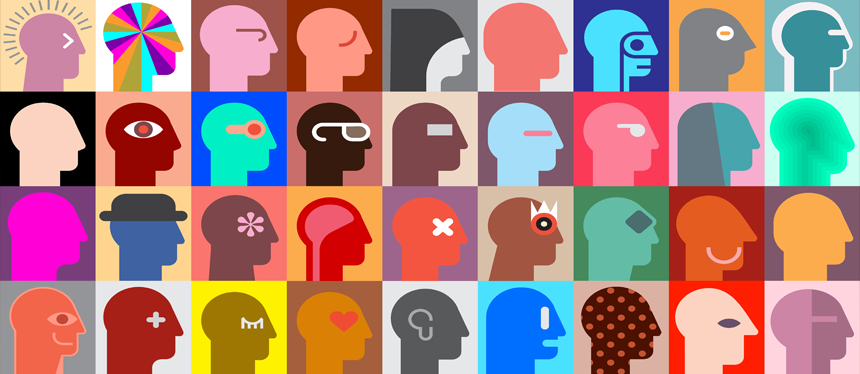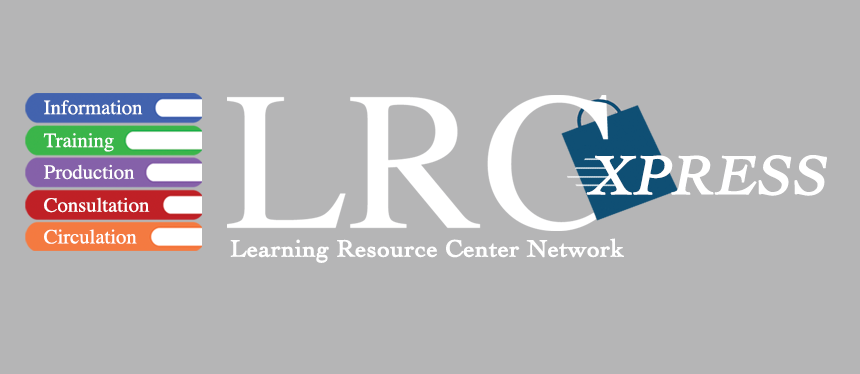who-am-i
who-am-i
Who Am I?
Navigate conversations with your family around topics of identity, biases, embracing differences, and actionable equity.Resources
Social Identity
These resources will help guide families in building positive social identity.
Online Resources
Coming Together: Talking to Children About Race and Identity - Sesame Workshop - Sesame Workshop believes in a world where all children can reach their full potential and humanity—and do so in celebration of their races, ethnicities, and cultures. Together with experts, they've designed developmentally appropriate resources to help you guide your child to be smarter, stronger, and kinder—and an upstander to racism
Gender Identity Development in Children - Gender identity development, how can families support it, and how children usually express their gender are explored.
Helping Children Develop a Sense of Cultural Identity | ParentMap - Culture is a large portion of an identity of a child let alone a family. Share your experiences with your children, repetition is key and forming a plan for your family will promote cultural identity.
How to Find Your Purpose as a Special-Needs Family - Construct a positive perspective of your family when your child(ren) have a disability.
The Importance of a Child's Social Identity - Explains social identity and its importance along with how to support your child’s social identity and warning signs and symptoms to pay attention to.
The Importance of Representation in Books - VeryWell Mind - This article will confirm the need for representation in all books.
Using Stories to Nurture Identity - Zero to Three - Provides tips and tools for families with young children to build a positive self-identity, gender identity, and racial identity.
What’s Lost When Parents Don’t Talk about Social Identity With Their Kids - Describes the significance of Sesame Workshop’s 2019 report on social identity development and the importance of having conversations about social identity with your children.
Your Teen's Sexual Orientation and Gender Identity - Describes sexual orientation and gender identity and how to support your child.
LRC-South Resources
Click here to search our library collection and reserve resources via LRC Xpress → Submit Form
Books:
- A Parent’s Guide to Down Syndrome by Siegfried M. Pueschel
- Dyslexia: A Complete Guide for Parents and Those that Help Them by Gavin Reid
- Gay, Straight and Accepted by Cerebullum Co.
- Let’s Talk about About Puberty for Girls by Disney
- Let’s Talk about About Puberty for Boys by Disney
- Positive Parenting for Young Children with Autism by Phil Strain
Recognizing Biases
Explore ways to help families identify their biases, recognize how they impact others, and develop positive strategies to address and rectify those biases.
Online Resources
9 Resources for Teaching Anti-Racism | ISTE - These resources offer a deep well of free materials for parents to address racism, inequity and bias and strategies for offsetting the devastating effects of racism on young people.
Anti-Racism Resources for Families and Educators - Understood.org explores racial identity, how families and school talk about race and additional topics.
Books about racism for kids: Anti-racism - A book list containing books on anti-racism, and loving who you are.
Family and Community Engagement - Teaching Tolerance
How to Speak to Children about Race: A Playlist | Wide Open Schools - Collection of videos to help parents and educators guide the conversation about race and racism.
Resources - Center for Racial Justice in Education - A collection of guides to support educators and families in talking about racism and racial justice with their kids.
Strategies to Address Unconscious Bias | UCSF - When considering strategies to address unconscious bias one must consider individual and institutional strategies.
Talking About Racism and Violence: Resources for Educators and Families - ¡Colorín colorado! - Use the “What’s on This Page” feature to jump right to resources for families as they talk to their children about race and racism. There are also numerous book lists for all ages in the recommended reading section!
Talking to Children about Racial Bias - HealthyChildren.org - Provides information about how children learn racial bias, strategies for parents in confronting their own racial bias, and tips for talking about racial differences with children.
LRC-South Resources
Click here to search our library collection and reserve resources via LRC Xpress → Submit Form
Books:
- I Will Be Your Friend: Songs and Activities for Young Peacemakers by Larry Long, J.D. Steele, & Ellen Weiss
- Skin Again by Bell Hooks
- Two Eyes, A Nose, and A Mouth A Book of Many Faces, Many Races by Roberta Grobel Intrater
Embracing Differences
To celebrate the diversity of the human family, we must seek to understand and embrace our differences by encouraging an open heart and empathy.
Online Resources
As Dr. Rudine Sims Bishops famously said, reading diversely can be a great way to provide “windows” for your children to see into other peoples’ lives and experiences. These book lists and awards can be a great launching point for your family in this endeavor!
American Indian Youth Literature Award - AILA - This award is given biennially to Native American and Indigenous authors or illustrators for the best picture, middle grade, and young adult books that portray the full humanity of Indigenous North American people.
Arab American Book Award - Arab American National Museum - This award is given annually to honor books by and about Arab Americans in the categories of adult nonfiction, adult fiction, poetry, and children/young adults.
Asian/Pacific American Award for Literature - APALA - This award is given annually to Asian/Pacific Islander American authors and illustrators for adult fiction, adult nonfiction, children’s, youth, and picture books that honor Asian/Pacific American experiences and cultures.
Coretta Scott King Book Award Winners - CommonSenseMedia - This award is given to outstanding African American authors and illustrators of books for children and young adults that demonstrate an appreciation of African American culture and universal human values.
Dolly Gray Children’s Literature Award - This award is given annually by the Division on Autism and Developmental Disabilities and the Council for Exceptional Children to an author or illustrator of a children’s picture, intermediate, or young adult book that appropriately portrays individuals with developmental disabilities.
Pura Belpré Award Winners - ALSC - This award is given annually to a Latino/Latina children’s author, youth illustrator, and young adult author for outstanding works of literature that best depict and celebrate Latino culture.
Schneider Family Book Award Winners - ALA - This award is given annually to an author or illustrator of children’s, middle grade, and teen books that artistically portray the disability experience.
Stonewall Book Awards - ALA - This award is given annually to adult fiction, adult nonfiction, and children’s or young adult books for exceptional merit relating to the LGBTQIA+ experience.
Walter Dean Myers Awards for Outstanding Literature - This award is given annually to celebrate diverse literature for teens and younger readers. To qualify, the author and main character must identify as a person of color, Native American, LGBTQIA, a person with a disability, and/or a marginalized religious/cultural minority in the U.S.
Check out our Monthly Awareness Themes! We provide thematic weblinks and recommend books and materials from our lending library that promote inclusion and diversity.
LRC-South Resources
Click here to search our library collection and reserve resources via LRC Xpress → Submit Form
Books:
- African American History in the United States of America An Anthology - From Africa to President Barack Obama by Tony Rose
- Portraits of Hispanic American Heroes by Juan Felipe Herrera
- Rhinos and Raspberries: Tolerance Tales for the Early Grades by Teaching Tolerance
- We Are All Alike, We Are All Different by Cheltenham Elementary School
Actionable Equity
Explore practical steps families can take in their own homes, communities, schools, and organizations to make equity a reality.
Online Resources
Family Resources - Speak Truth to Power in School - A guide to engaging your family in meaningful conversations around issues of human rights, while also deepening your family's social and emotional skills. Each set of conversations encourages families to reflect on a key social and emotional competency in their own lives and learn about a human rights icon who embodies the importance of that skill in their work of equity.
How to Navigate Your Own Privilege - VeryWell Mind - An article exploring what privilege can look like in day-to-day life, giving suggestions on how to be cognizant of your privilege and describing how to use it to work in unity with disenfranchised groups.
Race Equity and Inclusion Action Guide - The Annie E. Casey Foundation - A guide that can be used in any community group to build shared language around equity and take concrete steps to make equity a reality in their community.
Racial Equity in Your PTO or PTA: What Are You Doing? - PTO Today - Advice and resources for creating more inclusive parent groups to represent all families in your child’s school community and promote equity in education.
Serving on Groups: Webinar Series & Resources - SPAN - A webinar by the NJ Statewide Parent Advocacy Network (SPAN) designed to empower parents to make an impact in their community by serving on a decision-making group of their choice. Also available in Spanish.

Teaching About Race, Bias and Social Justice
Strengthen your awareness by discussing race and bias. Starting these critical conversations will lead to lasting change in our schools, communities and nation. These resources allow us to appreciate and empathize the differences we see in others and to stand for equity in our classrooms, homes, and communities. Learn More

